
Home » Phonics Rules to Teach
Did you know that a phonics rule in English is that no words can end in i, u, v, or j? Wow! This important phonics rule can help explain the spelling and pronunciation of many words that are often taught as irregular. Keep reading for tips on phonics rules to teach to your students!
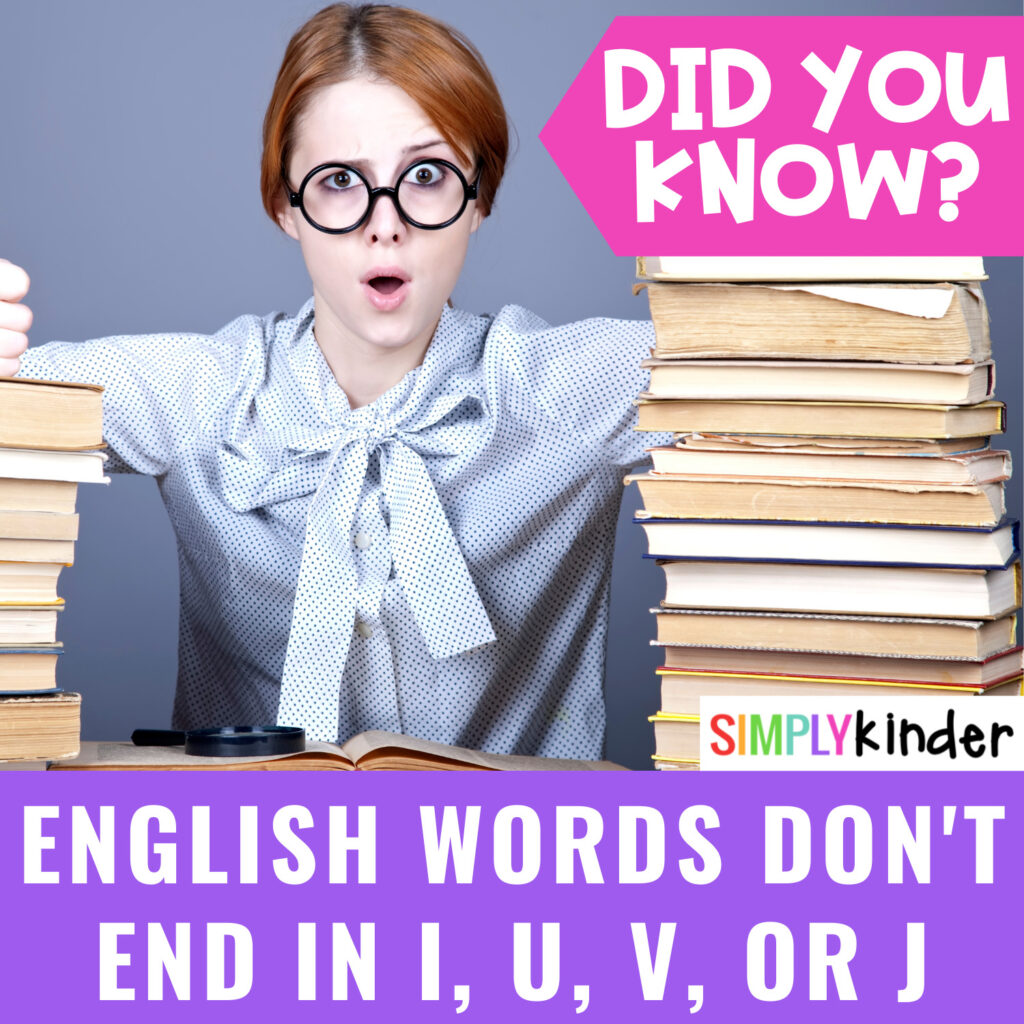
We believe that it’s important for teachers to know the phonics rules and teach these to students so they can better understand the English language. As mentioned in previous articles, 98% of all English words are decodable! So let’s not teach students that many words are irregular or need to be memorized.
Read more Science of Reading articles here.
This article works well with these Simply Kinder resources:

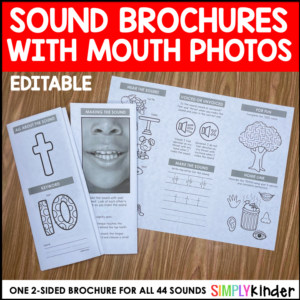
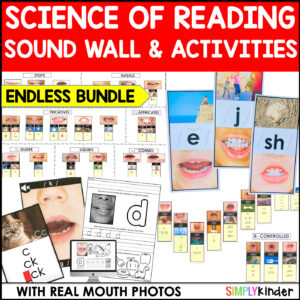
No words can end in i, u, v, or j in the English language! This rule needs to be explicitly taught to students so they can understand why these words are spelled and pronounced the way they are.
And we would argue that this rule is easy enough that your kindergarten and first-grade students should know it.
For example, let’s look at the words have. Should you be teaching how to decode have? Yes! Students typically decode have as having a long a sound because they are taught that magic e will tell a to say its name. But then we tell them that have doesn’t follow that rule and it needs to memorize as a “sight word.” But there’s a better way!
BUT really the word HAVE follows the rules and does not need to be memorized! If we go from speech to print, the sounds are /h/ /a/ /v/. One of the many jobs with silent e is to help words follow this rule. Therefore, the e is added at the end of the spelling of the word thus keeping that a short instead of long!
WHOA!
After teaching this rule to a kindergarten student, she thought for a couple of moments and said, “It’s the same for the word love!” The connection was amazing! Let’s stop teaching memorization but decoding of words with a deeper understanding of phonics rules.
Teacher takeaway: If you hear a /v/ sound at the end of a word in English, it will end in -ve. That final e is silent, so you will only hear and pronounce the /v/ sound.
Read more about teaching decoding sight words here.

Words in English also do not end in the letter j. Therefore, when you hear the /j/ sound at the end of an English word, it will be spelled as –ge or in –dge. This will help explain the spelling and pronunciation of common words like cage, age, edge, and bridge. Can you think of other words that students might confuse?
This is also part of the phonics rule that needs to be taught! But students may notice that words like I and you do end in i and u! Oh no! These two words are part of 2% of permanently irregular words that in fact do not follow the rules!
Here’s how to teach the words I and you: explain that you and I are so special that we break the rule! They simply just need to be memorized.
But 98% of English words follow the phonics rules and do not end in i, u, j, or v!
Looking for decodable readers and activities to support your instruction? Check out the endless Decodable Readers + Word Work Activities bundle here. Includes a HUGE variety of decodable books (that follow a storyline and focus on a specific phonics pattern) with supporting activities to support your instruction!
⭐️⭐️⭐️⭐️⭐️ “Wow, just WOW!! If you have been searching for decodable readers WITH word work activities AND center activities, then you NEED this resource! This resource also aligns very nicely with the science of reading approach, which is a huge plus! I highly recommend this bundle!!!“
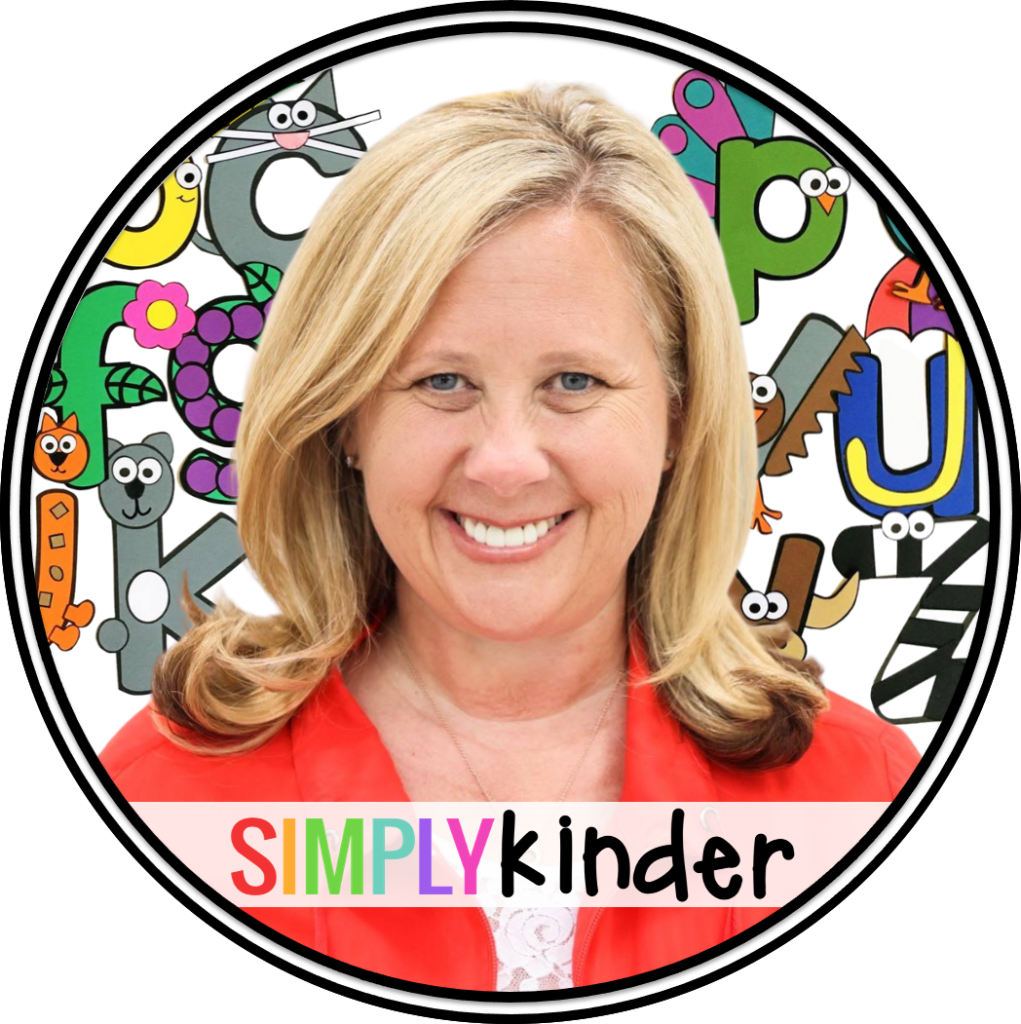
With Unmatched Printables & Engaging Classroom Ideas, Simply Kinder is your TRUSTED TEAMMATE.
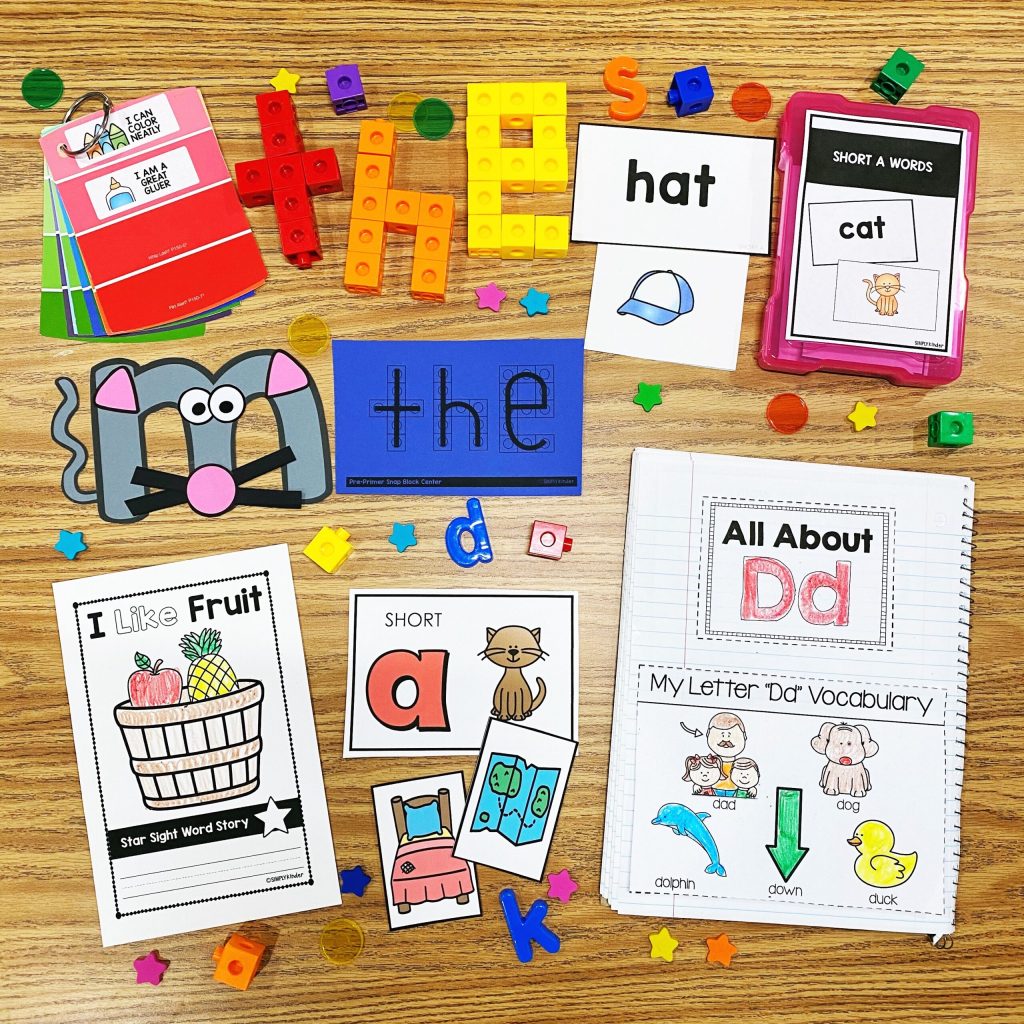
Get our emails loaded with free resources, teaching ideas, and so much more!

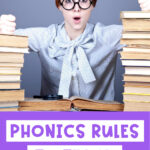
You might also like: